Key Identification and Usage
The lock cylinder keyway is designed so that other model keys will not
enter a current model lock cylinder. A single key is used for all locks on
the vehicle.
The key identification is obtained from the four-character key code
stamped on the knockout portion of the key head. Knock the plugs out of the
key head after the code numbers have been recorded. The code list, available
to owners of key cutting equipment from equipment suppliers, determines
the lock combinations from the code numbers.
If the code numbers are not available from the records or from the knockout
plug, lay the key on the key code diagram in order to determine the lock combinations
(the tumbler numbers and the position arrangement).
Cutting Keys
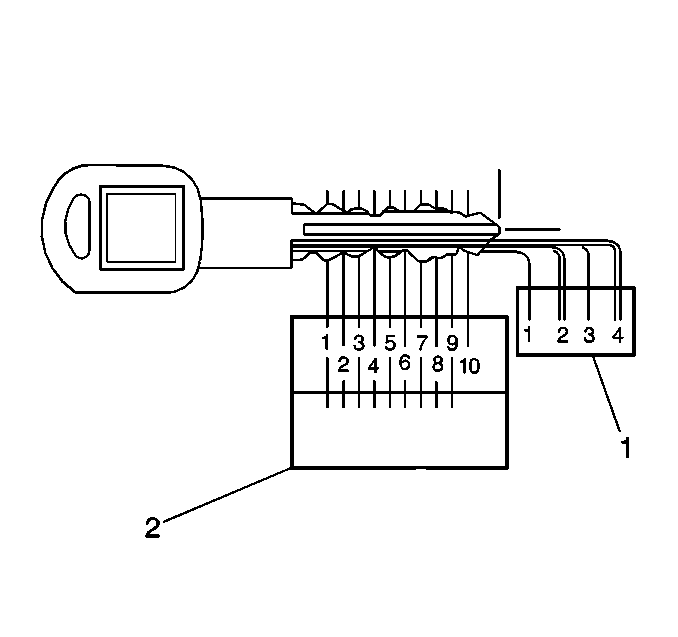
After the code has been
determined from the code list or the key code diagram, perform the following
steps:
- Cut a blank key to the proper level (1) of each of the tumbler
positions (2).
- Inspect the key operation in the lock cylinder.
Replacement Lock Cylinders
New lock cylinders (except ignition lock cylinders) are available from
the service parts warehouse with new lock cylinder locking bars. The tumblers
are also available and must be assembled into the cylinder as recommended.
For additional information, refer to the following.
Lock Cylinder Tumbler Operation
All lock tumblers are shaped alike with the exception of the notched
position on one side. As the key is inserted into the lock cylinder, the tumblers
are lowered to the correct height so that the notches on each tumbler are
at the same level. When the notches on all six tumblers line up, two small
springs push the side bar into the notches, allowing the cylinder to turn
in the cylinder bore. Five types of tumblers are used in making the lock
combinations, and each tumbler is coded and stamped with a number between
1 and 5.
Assembling and Coding Ignition Lock Cylinders
Tools Required
J 41340 Ignition
Lock Holding Fixture
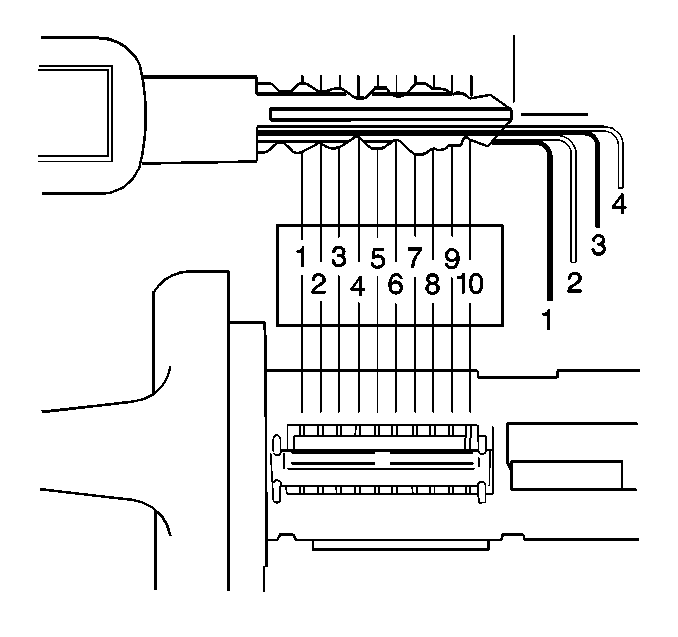
- Determine
the tumbler numbers/arrangement:
| 1.1. | Place the tip of the key directly over the tip of the illustrated
key. |
| 1.2. | Inspect that the diagram outlines the key. |
| 1.3. | Starting with position 1 (open end of cylinder), find and record
the lowest level (tumbler number) that is visible. |
| 1.4. | Repeat the previous step for positions 2-10. |
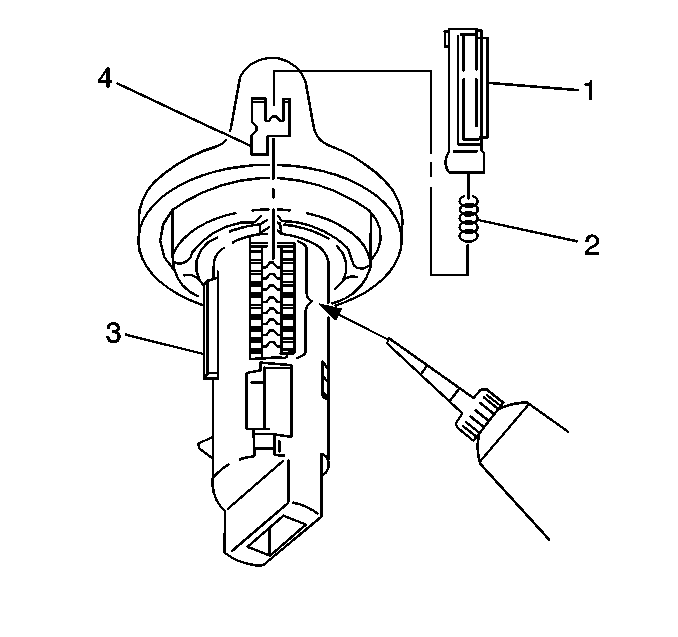
- Starting with position
1, insert the tumblers (4) into their corresponding slots in the coded order.
- Using your fingers, pull out the side bar (3) until the tumblers
fall completely into place.
- Insert one tumbler spring (2) above each tumbler (4).
- Lubricate the tumblers using Superlube® GM P/N 12346241
or equivalent.
- Insert the spring retainer (1) prongs into the slots at the end
of each cylinder.
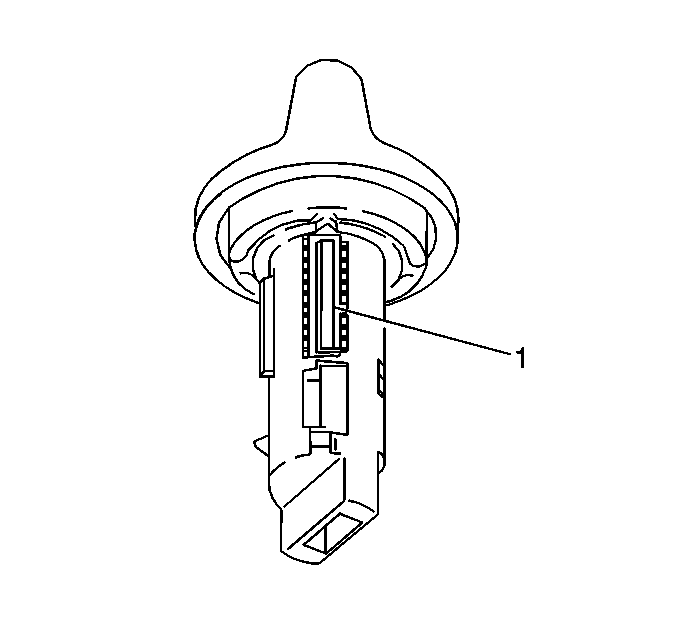
- Press down the retainer
(1) until fully seated in the depression.
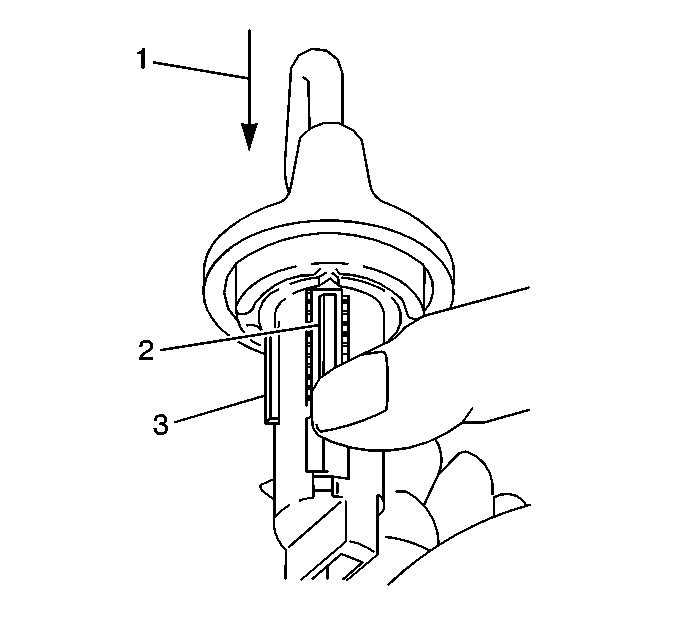
- Inspect for proper tumbler
installation:
| 8.1. | Hold the spring retainer (2) in position. |
| 8.2. | Insert the key (1) into the cylinder. |
| 8.3. | The side bar (3) should drop down flush with the cylinder diameter
if properly installed. |
| 8.4. | Disassemble and assemble properly as needed. |
- Remove the key.
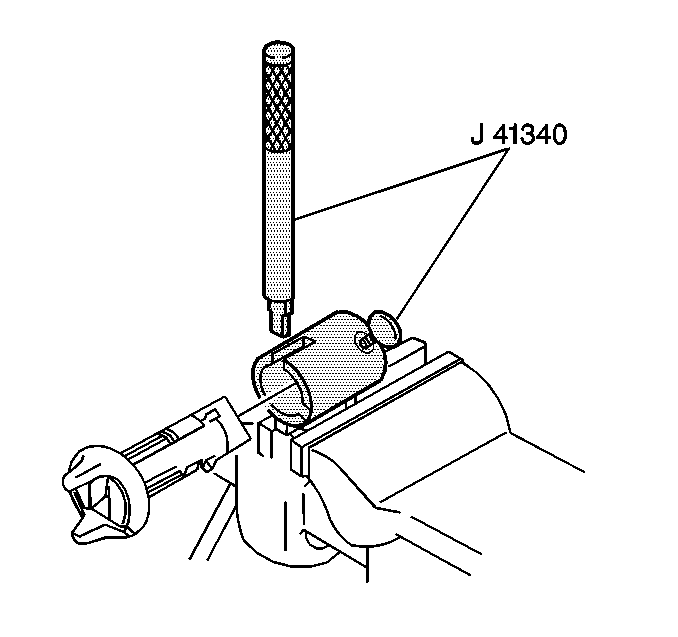
- Secure the cylinder in
the J 41340
.
| 10.1. | Inspect that the spring retainer is facing up and positioned directly
under the punch slots. |
| 10.2. | Push the cylinder into the J 41340
until butted with the cylinder bezel. |
| 10.3. | Tighten the holding screw. |
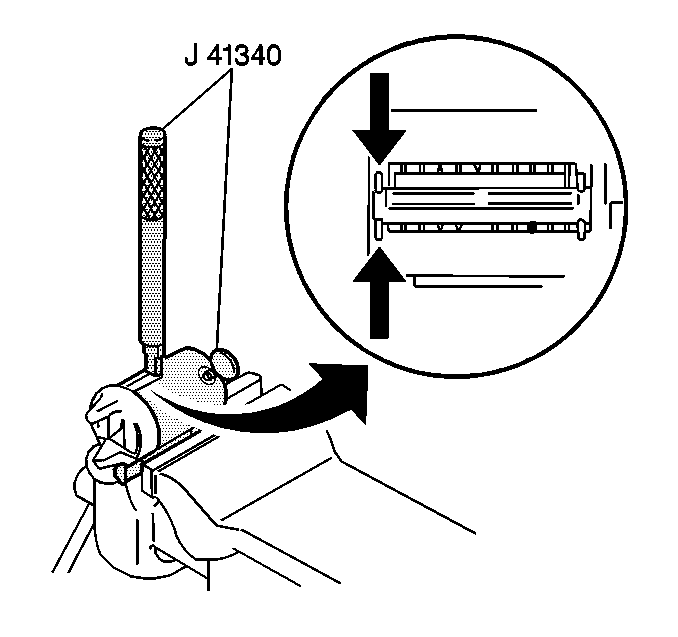
- Stake the bezel end of
the retainer in place:
| 11.1. | Hold the flat side of the punch, part of J 41340
, squarely against the face of the cylinder
bezel. |
| 11.2. | Stake the lock cylinder metal over the retainer corners. |
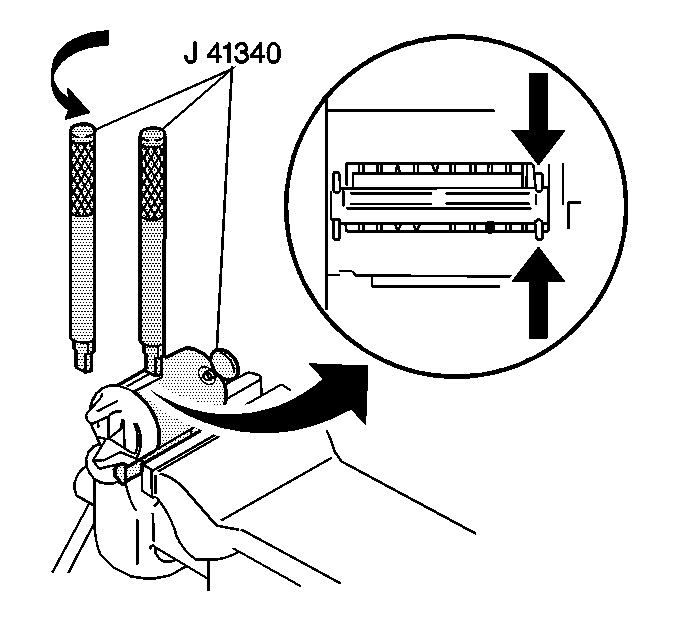
- Stake the other end of
the retainer:
| 12.1. | Remove the punch, part of J 41340
. |
| 12.2. | Rotate the punch, part of J 41340
, 180 degrees. |
| 12.3. | Hold the punch, part of J 41340
, squarely against the end of the punch slot on J 41340
. |
| 12.4. | Stake the metal over the other end of the retainer. |
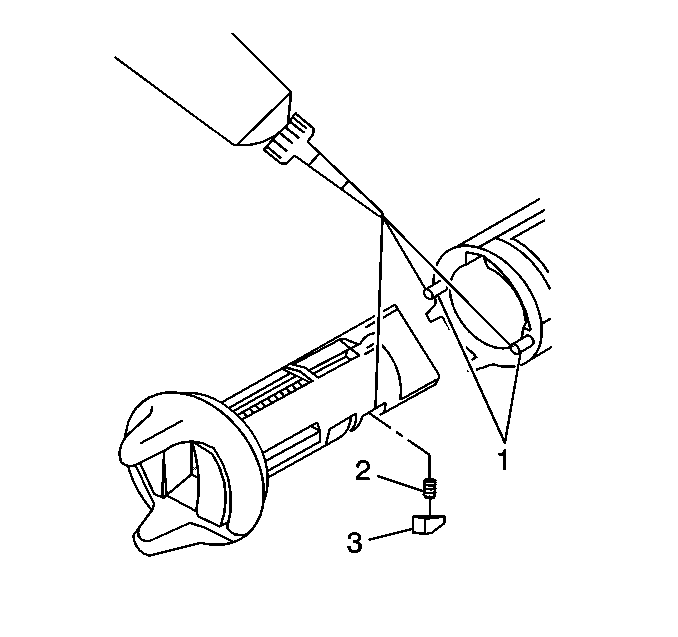
- Loosen the holding screw.
- Remove the cylinder from the J 41340
.
- Inspect that the retainer is properly staked. Restake as needed.
- Lubricate the cylinder retainer slot.
- Insert the following parts into the cylinder retainer slot:
| • | The retainer spring (2) |
Important: Use a paste type grease, not a spray, for the following step.
- Lubricate the following parts with GM P/N 12345996 or
equivalent as needed:
| • | The cylinder retainer (3) |
Side Door Lock Cylinder Coding
The side door lock cylinder has five snap-in tumblers. The number 1-5
positions (beginning closest to the cylinder head) are a brass retainer tumbler.
The 6-10 positions are standard tumbler positions. Therefore, only
the 6-10 positions are required.









